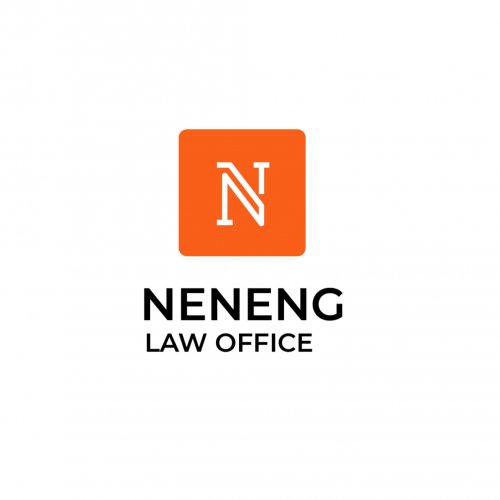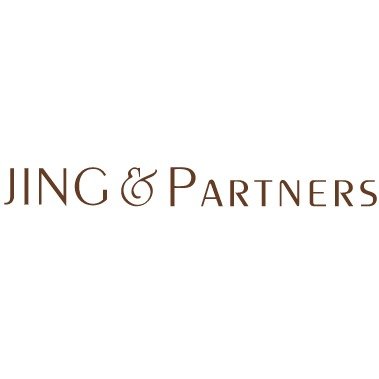Best Public-Private Partnerships (PPP) Lawyers in Douala
Share your needs with us, get contacted by law firms.
Free. Takes 2 min.
List of the best lawyers in Douala, Cameroon
About Public-Private Partnerships (PPP) Law in Douala, Cameroon
Public-Private Partnerships, commonly referred to as PPPs, are formal collaborations between government entities and private sector companies designed to deliver public infrastructure or services. In Douala, Cameroon, PPPs are increasingly used as tools to finance, build, and manage projects such as roads, ports, hospitals, water supply, and power generation. These partnerships allow the government to leverage private sector expertise, technology, and capital for crucial public projects while ensuring that private investors receive fair returns within the legal and regulatory framework of Cameroon.
PPPs in Douala are regulated by a combination of national laws, local statutes, and international best practices. The legal framework sets out the requirements for structuring, procuring, executing, and managing PPP projects, ensuring transparency and fair risk allocation. Both public authorities and private investors need to understand these laws and guidelines to ensure that PPP projects are legally compliant and beneficial for all parties involved.
Why You May Need a Lawyer
Legal expertise is crucial in navigating the complexities of PPP arrangements in Douala. Here are common situations where obtaining legal assistance is essential:
- Drafting and reviewing PPP contracts to ensure clarity and fair risk distribution
- Advising on compliance with local and national regulations governing PPPs
- Participating in competitive bidding or tendering processes for PPP projects
- Negotiating terms with public or private stakeholders
- Resolving disputes that may arise between parties during the course of a PPP project
- Ensuring that project financing and security arrangements comply with Cameroonian law
- Assisting with regulatory approvals and obtaining necessary permits
- Assessing the tax implications and structuring of PPP agreements
Given the complexity and long-term nature of PPPs, involving a lawyer early in the process can help prevent costly legal issues and safeguard the interests of all participants.
Local Laws Overview
PPPs in Douala are mainly governed by Cameroon’s general PPP legal framework, including Law No. 2006/012 of 29 December 2006 relating to general PPP contracts, amended and supplemented by Law No. 2017/011 of 12 July 2017. These laws define how PPP projects can be initiated, procured, executed, and monitored.
Key aspects include:
- The creation of the PPP Support Council (Conseil d’Appui à la Réalisation des Contrats de Partenariat, or CARPA) responsible for project oversight and guidance
- Procedures for identifying and prioritizing PPP projects
- Requirements for the competitive bidding process to ensure transparency and fair competition
- Clauses on project risk allocation, payment mechanisms, and dispute resolution
- Clear stipulations regarding the rights and obligations of both the public and private partners
- Specific rules governing land acquisition, expropriation, and environmental considerations
- Financing structure norms, including guarantees and potential government support
- Regulation of contract duration and mechanisms for contract renegotiation or termination
In addition to national legislation, local authorities in Douala may set additional requirements for PPP projects relating to zoning, permits, and community engagement. Close attention must be paid to these local nuances.
Frequently Asked Questions
What is a PPP in the context of Douala, Cameroon?
A PPP is a project delivery model where a public agency partners with a private company to finance, construct, operate, or maintain infrastructure or services that serve the public interest in Douala and throughout Cameroon.
Who oversees PPP projects in Douala?
The Cameroon PPP Support Council (CARPA) oversees and supports the implementation of PPP projects nationwide, including in Douala. Local government authorities may also be involved in supervising local PPPs.
How are PPP projects initiated in Douala?
PPP projects can be initiated by the government identifying a need, through proposals by private sector entities (unsolicited proposals), or via mandated government programs. All must comply with prescribed legal and procurement procedures.
Do PPP contracts require a public tender in Douala?
Generally, yes. PPP contracts are awarded through a competitive tendering process to encourage transparency and best value for money. However, certain exceptions exist, such as direct negotiation in specific circumstances allowed by law.
What sectors are most common for PPPs in Douala?
Common sectors include transportation (roads, ports), water supply, energy, healthcare (hospitals), education, housing, and waste management.
Can foreign investors participate in PPPs in Douala?
Yes, foreign investors can participate either alone or in joint ventures with domestic companies, subject to compliance with local investment laws and regulations.
What are the key risks in a PPP project?
Key risks include construction and operational risks, financial risks, regulatory and political risks, and market demand uncertainties. It is vital these risks are clearly defined and allocated within the PPP contract.
How are disputes in PPPs resolved?
Disputes may be resolved by negotiation, mediation, or, if necessary, by arbitration or litigation. The preferred dispute resolution mechanisms are stipulated in the contract and may include recourse to international arbitration.
Can a PPP contract be terminated?
Yes, PPP contracts can be terminated under specific conditions defined in the agreement, such as default, force majeure, or mutual agreement, usually with associated compensation clauses.
Do PPP projects require environmental and social impact assessments?
Yes, major PPP projects typically require environmental and social impact assessments as part of the approval process to ensure they comply with both national and international standards.
Additional Resources
If you require further information or support, the following resources may be helpful:
- PPP Support Council (Conseil d’Appui à la Réalisation des Contrats de Partenariat - CARPA): The main national body for PPP guidance and oversight.
- Ministry of Public Works: Supports infrastructure-related PPP projects and procurement.
- Cameroon Investment Promotion Agency (CIPA): Provides support for investors, including PPPs.
- Local Douala Municipal Authorities: Offer guidance on local regulations and requirements.
- Bar Association of Cameroon: Directory of qualified lawyers specializing in PPP and infrastructure.
Next Steps
If you need legal assistance in Public-Private Partnerships in Douala, consider the following steps:
- Define your interests and objectives for participating in a PPP project.
- Gather any relevant documentation, including business plans, project ideas, or tender notices.
- Identify and engage a lawyer specializing in PPP law and local regulatory requirements.
- Schedule a consultation to discuss your project and obtain legal guidance on compliance and negotiations.
- Collaborate with your legal advisor throughout the bidding, contracting, and implementation phases to ensure smooth project progress and compliance with the law.
Engaging with a qualified legal professional who is knowledgeable in Douala’s PPP framework will give you the confidence to move ahead and help secure the success of your PPP initiative.
Lawzana helps you find the best lawyers and law firms in Douala through a curated and pre-screened list of qualified legal professionals. Our platform offers rankings and detailed profiles of attorneys and law firms, allowing you to compare based on practice areas, including Public-Private Partnerships (PPP), experience, and client feedback.
Each profile includes a description of the firm's areas of practice, client reviews, team members and partners, year of establishment, spoken languages, office locations, contact information, social media presence, and any published articles or resources. Most firms on our platform speak English and are experienced in both local and international legal matters.
Get a quote from top-rated law firms in Douala, Cameroon — quickly, securely, and without unnecessary hassle.
Disclaimer:
The information provided on this page is for general informational purposes only and does not constitute legal advice. While we strive to ensure the accuracy and relevance of the content, legal information may change over time, and interpretations of the law can vary. You should always consult with a qualified legal professional for advice specific to your situation.
We disclaim all liability for actions taken or not taken based on the content of this page. If you believe any information is incorrect or outdated, please contact us, and we will review and update it where appropriate.














